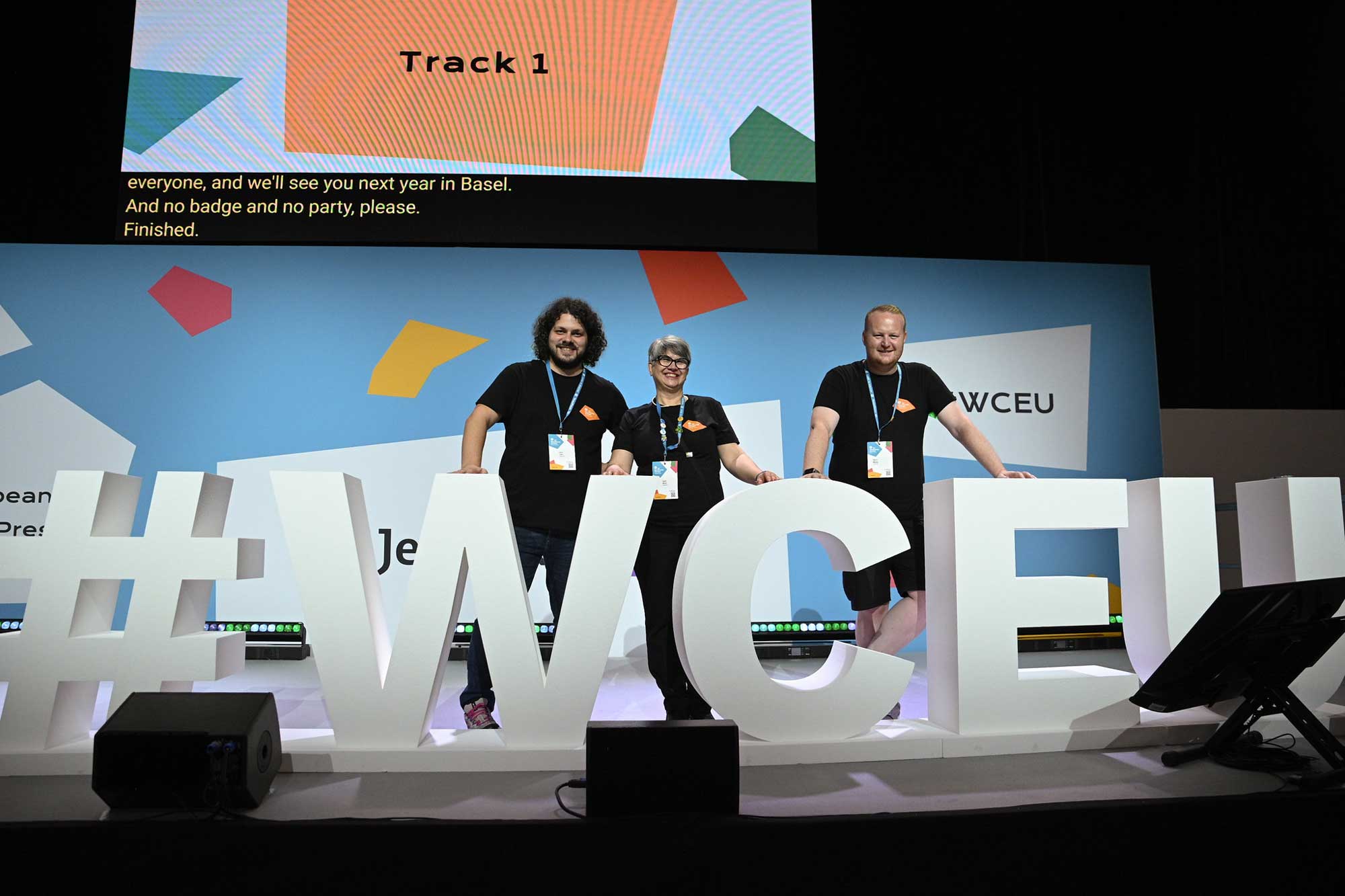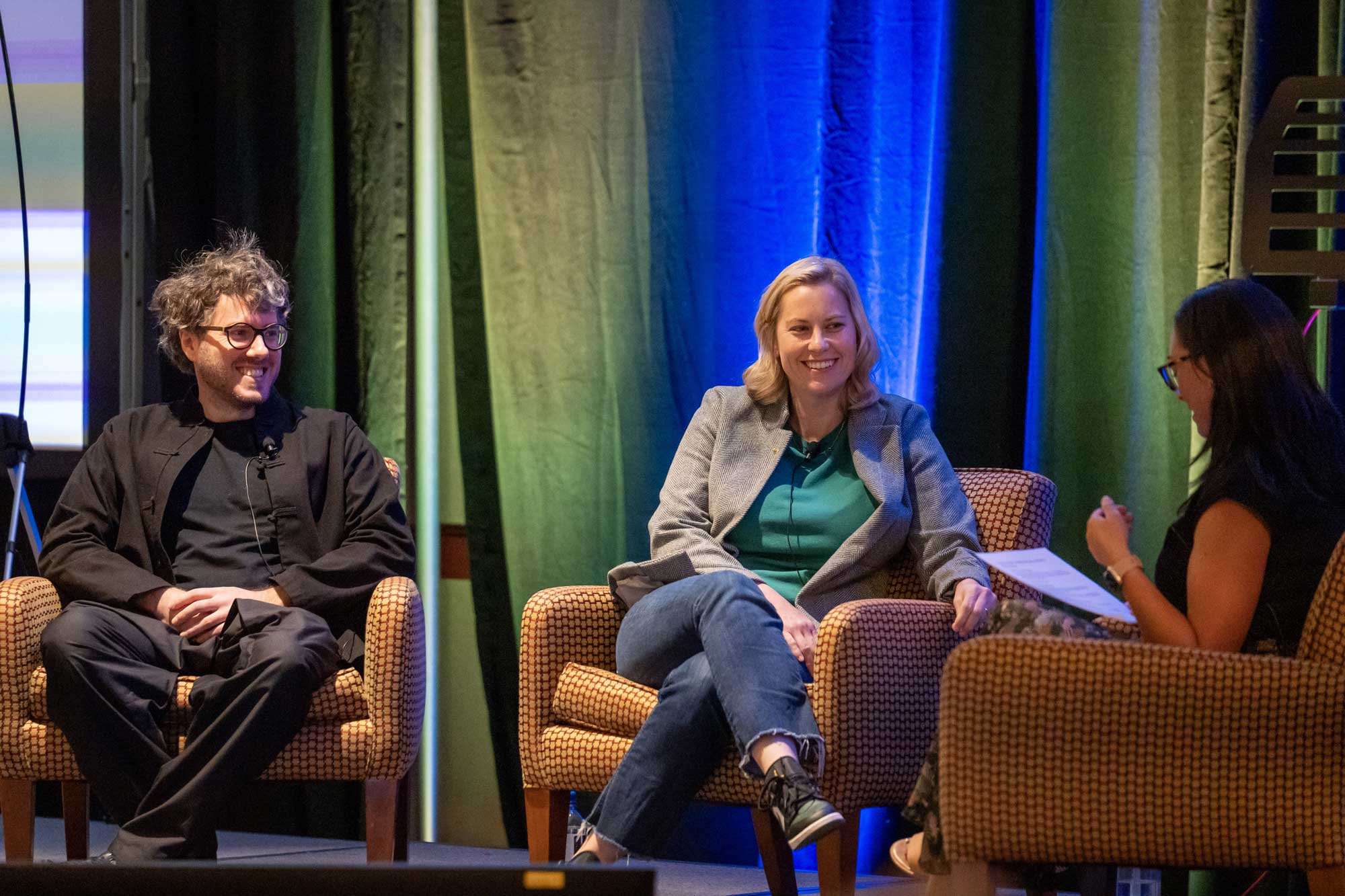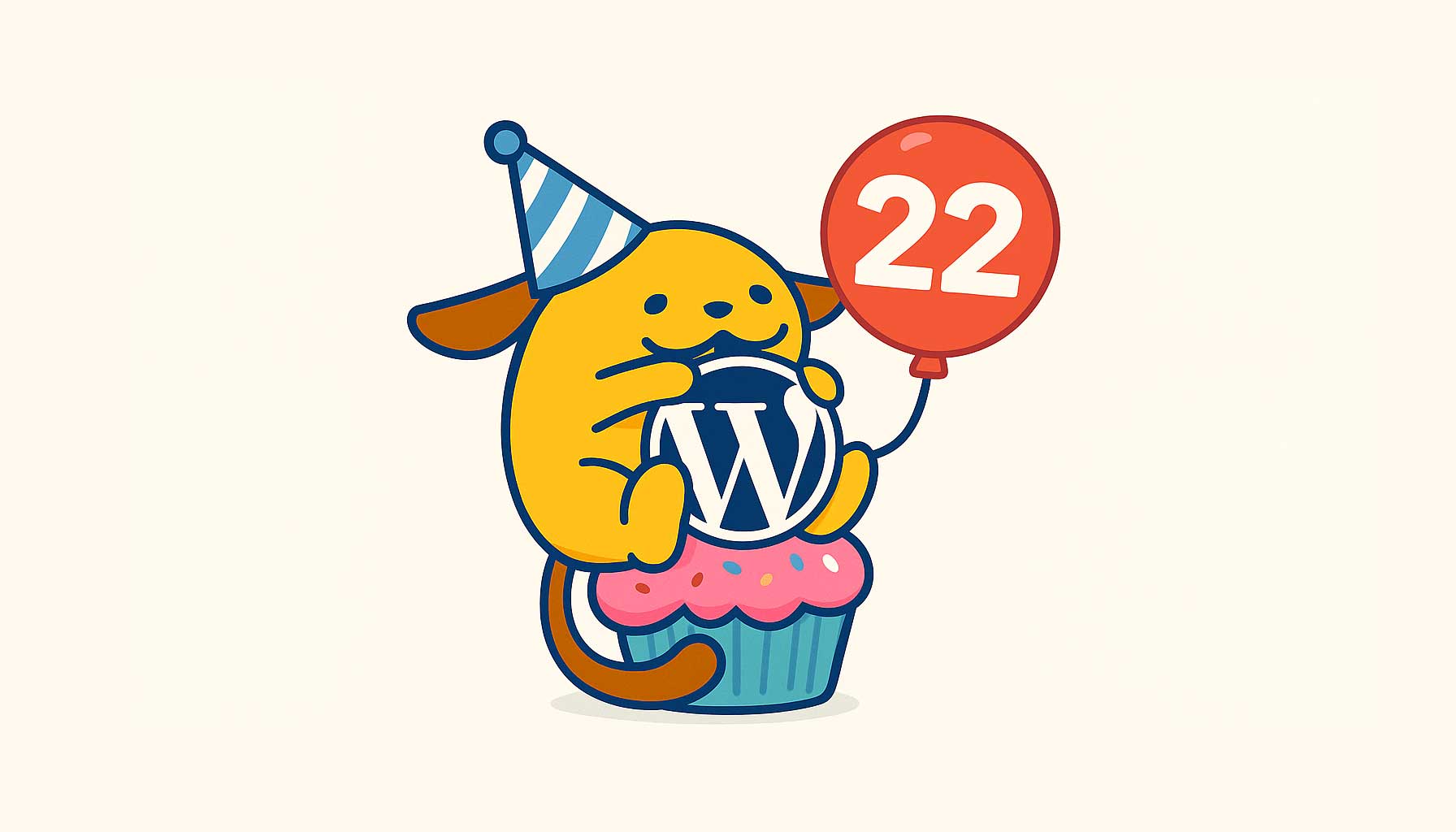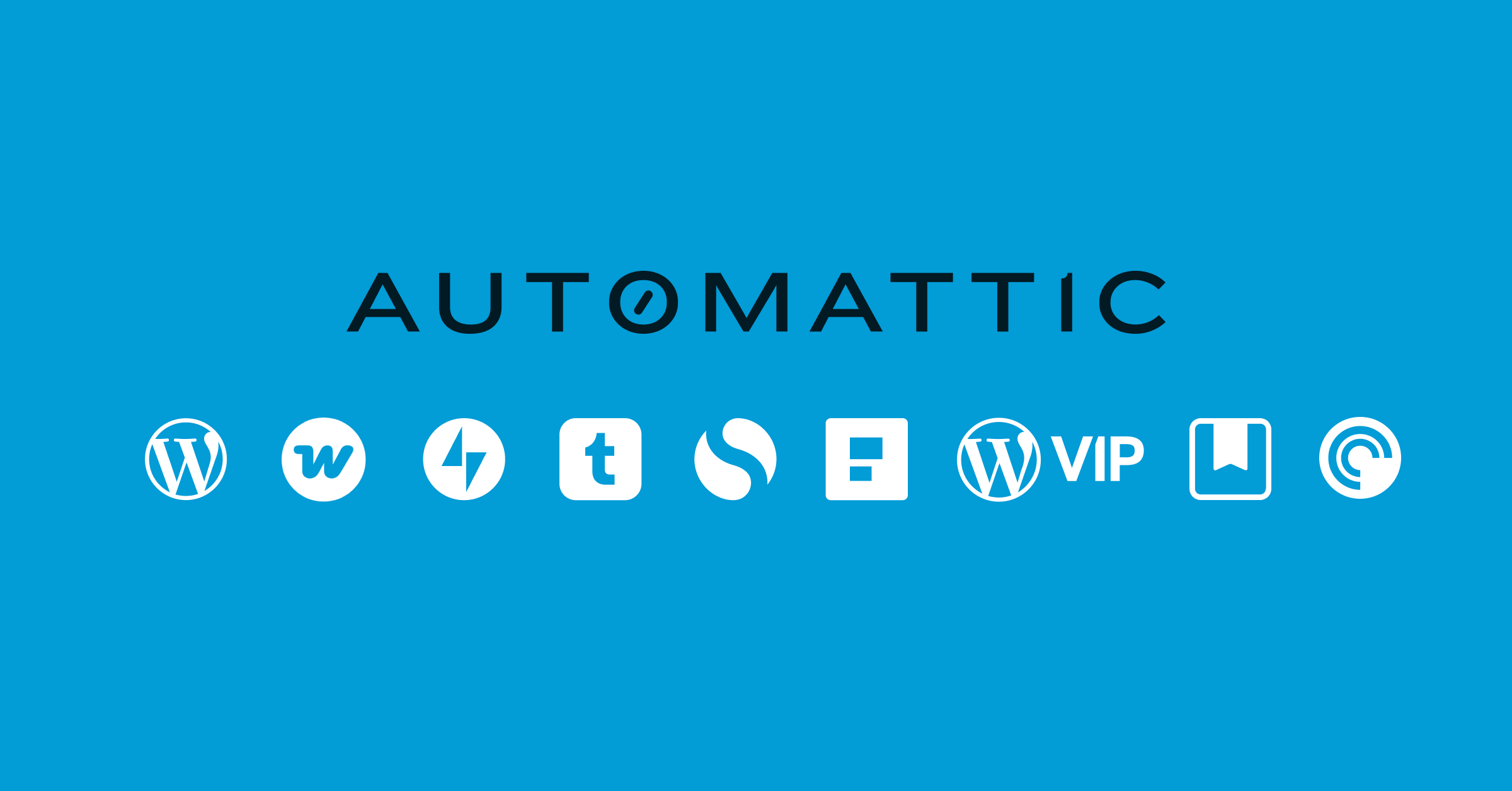WordCamp Europe 2025 is just around the corner, set to take place June 5–7 in Basel, Switzerland. It’s the 13th edition of the flagship WordCamp, but for many, this year feels very different.
Amid community tensions and questions about the future of the WordPress project, lead organizers Laura Sacco, Steve Mosby, and Uros Tasic have kept their focus on making the event as welcoming, accessible, and community-driven as possible. In this Q&A, we talk about how they’ve done it — navigating visa hurdles, internal worries, team motivation, and the weight of leading a 90-person organizing team.
We also get into the practical stuff: free tram travel, biking across the Swiss border, cheap eats, and the joy of turning digital teammates into real-life hugs.
Question: What was the organizing team’s vision for this year’s WordCamp Europe, and how has that guided your planning?
Steve: We really wanted to create a welcoming and inclusive event. Last year in Torino, we got great feedback on the diversity of our speakers and organizers. This year, that felt even more important. It’s been a difficult year in the community, but our 90 organizers have been incredibly resilient. We tried to delegate more and give them real autonomy. That’s helped them feel ownership, and we’ve seen some really bold and thoughtful decisions as a result.
Laura: And we wanted to create a real sense of community. WordCamp is a community event, and despite everything that’s been happening, we wanted it to feel like a celebration of what connects us.
Uros: Every community has its ups and downs. At the start of the year, we didn’t have big hopes. Things felt uncertain. But the community came through. We’ve restored our optimism. It feels good.
Q: The schedule reflects a clear and deliberate shift toward inclusion, with a wide range of voices and topics represented. How did you approach curating this year’s program?
Laura: This is the first year I can remember where we haven’t had complaints about inclusion! Last year was good, too. But a few years ago, it was tough. There was a lot of criticism on social media. People felt the speaker line-up wasn’t representative. I was on the speakers team, and Steve was leading comms. It was intense.
Steve: We learned from it. And now, we don’t wait for someone to raise a red flag about inclusion — we lead with it. We make sure the whole event reflects different voices and perspectives.
One other thing: we heard a lot from attendees that the most valuable part of WordCamp is the people. So we deliberately built in more breaks. Fifteen or 20 minutes here and there, just to give people time to connect. At WordCamp Lisbon recently, I ended up having a long chat with someone during a break, and that kind of thing makes the whole experience feel more human.
And someone came up to me and said, “Hey, Steve!” I didn’t recognise them at first. I’m used to seeing people as a little Slack avatar. Suddenly they have legs and a torso! It was great to finally meet them properly after all this time.
Uros: We also made sure to include timely topics, like AI. Some people will always want more dev talks, or more design talks, depending on their background. But we’ve tried to balance it. And AI is definitely going to be a draw.
Q: How are ticket sales going?
Steve: Honestly? Better than we expected. We’re currently looking at around 2,000 attendees. At the start, we weren’t sure how it would go. Switzerland has that reputation — it’s seen as expensive, and we know that can scare people off. And with everything else going on in the community, there was a bit of hesitation.
Uros: In the past couple of weeks, things have picked up. Still, visa issues have been a real hurdle. Switzerland isn’t in the EU, so the process is more complicated for many countries. Some people needed to prove they had a certain amount of money per day in their bank account—and that’s not easy. We issued more than 200 visa invitation letters, but not everyone could get approved.
Laura: It’s tough, because people want to come. We’ve done everything we can — letters, support, resources — but there are limits to what we can fix. Still, seeing so many people making the effort means a lot. It’s a good reminder of how much WordCamp Europe means to this community.
Q: Basel was seen by some as a challenging choice due to Switzerland’s reputation as one of the most expensive countries in the world. How has the organizing team worked to make the event more accessible and affordable, and what initiatives have you introduced?
Steve: We’re really happy we kept the ticket price the same as in previous years. Switzerland does have a reputation for being pricey, but there are ways to make it manageable. If you’re staying in Basel, you get a Basel Card that gives you free access to public transport. The trams are fantastic — clean, reliable, and frequent.
We also worked with partners like This Is Basel and the Swiss Confederation. They helped us offer hotel discounts and supported the event officially. And because Basel borders France and Germany, attendees can stay across the border and get into the city within 10 minutes by tram or bike.
Laura: Yes, you can absolutely bike in! I know a few people who are doing just that.
Uros: Food is another common question. I get asked about that a lot. But honestly, there are great options. Food courts, supermarkets, casual restaurants. Like anywhere, you can go fancy, but you don’t have to. We’ve posted a lot of this information to help people plan. It doesn’t have to be expensive.
Read more: Switzerland on a Budget – Yes, It’s Possible! (europe.wordcamp.org)
Q: This year’s event is happening in the shadow of tensions between WP Engine and Automattic. Has the feud and resulting fallout affected planning or participation in any way? If so, how has the team navigated it?
Uros: We’re still navigating it. It’s not finished. It’s ongoing.
Laura: One of the hardest things early on was keeping morale high. There was so much noise on social media, and a lot of organizers were confused. We didn’t have special insight — we were reading the same public posts as everyone else. That made it hard to reassure the team.
Uros: We had to remind everyone: we’re not here to pick sides. We’re here to organize a community event. We told organizers, “If you don’t feel okay continuing, that’s fine. You can step back.” And we meant it. No pressure, no judgment.
Steve: We held three town hall-style meetings in October, December, and March. They were on Zoom, unrecorded, just a safe space to talk. It helped a lot. When one person expressed a worry, others chimed in and said they felt the same. It brought people together.
Laura: We also reminded everyone that this is a WordPress Foundation event. If something makes you uncomfortable, you can step away. It doesn’t mean you’re out of the community. We’re all humans, we have opinions and feelings. We want organizing WCEU to be an enjoyable, enriching, and fun experience. Not a stressful one! And we want people to feel supported.
Q: WordCamp Europe is a huge volunteer-driven effort — as you mentioned earlier, there are 90 people on the organizing team. Can you share what it’s been like coordinating such a large team, and what makes this community effort unique?
Steve: It’s a big group. We also have two mentors and our longtime production partners, Production Pool. One thing we introduced this year was Slack huddles for team meetings. That way, if someone from another team needs to ask a question, they can just hop in.
Uros: It’s great for knowledge sharing. New organizers get to see how other teams work. And if someone realizes they would prefer to be on a different team next year, this gives them that insight.
Steve: And we have about 140 volunteers supporting the event. We’re making sure they’re well looked after — breakfast each day, access to the social, and a general sense of gratitude. They’re giving up their time and energy to make WordCamp Europe happen.
Q: Can you share anything about next year’s WordCamp Europe city?
Uros: We can’t say where just yet, but I can say this: it’ll be affordable and easier for visa access. That’s been a big part of the decision-making process.
Steve: And like every year, the next organizing team is already embedded into this one. That’s something we’ve done consistently, so the handover isn’t just a file in Google Drive, it’s a lived experience. They’re attending meetings, seeing how things work, learning by doing.
Laura: It really makes a difference. That continuity means they can start from a place of confidence. And they’re not alone — they’ve got our support and the knowledge passed down from every previous team.
Q: As WCEU continues to evolve, what lessons from this year’s event do you think will carry over into future editions?
Steve: I love seeing people return. Wendie [Huis in ‘t Veld] was a lead organizer last year and came back this year as an organizer. Some people stay in the same team year after year. And some, like us, move into lead roles. After June, my time as a lead wraps up, but I want to keep contributing. I’ve made real friendships here.
Laura: This is my seventh WordCamp Europe — I started back in 2017 in Paris as a volunteer. What I’ve seen this year especially is how powerful it is to say: “If you need to step back, that’s okay.” We’ve built something strong, but we’ve also created space for people to take care of themselves. That matters.
Steve: And the comms team this year has done a brilliant job. That’s thanks to the documentation from previous years — much of it written by past teams. That foundation allowed them to focus on making improvements instead of starting from scratch.
Uros: For me, it’s been nearly 10 years. I can’t imagine not doing this. We didn’t give up. We didn’t have big hopes at the start, but now we believe again.
Image credit: Kostas Fryganiotis, WordCamp Europe 2024.
The Repository is a proud Media Partner of WordCamp Europe 2025.









Leave a Reply